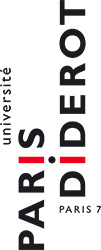Outils pour utilisateurs
DiffÃĐrences
Ci-dessous, les diffÃĐrences entre deux rÃĐvisions de la page.
|
fr:programme [2015/05/13 08:25] nkubler [Guy Aston] |
fr:programme [2021/11/30 02:09] |
||
|---|---|---|---|
| Ligne 1: | Ligne 1: | ||
| - | ====== Programme ====== | ||
| - | |||
| - | |||
| - | Vous pouvez tÃĐlÃĐcharger le programme ici {{:fr:trela_programme.compressed.pdf|}} | ||
| - | ===== ConfÃĐrenciers invitÃĐs ===== | ||
| - | |||
| - | |||
| - | ======Claire KRAMSCH====== | ||
| - | |||
| - | **Professor of German and Affiliate Professor of Education | ||
| - | at the University of California at Berkeley** | ||
| - | |||
| - | Presentation | ||
| - | |||
| - | APPLIED LINGUISTICS: A THEORY OF THE PRACTICE | ||
| - | |||
| - | |||
| - | Based on my own understanding of Applied Linguistics, I offer a reflection | ||
| - | on the field not as the application of linguistic theory or any other | ||
| - | theory to the âreal-life problemâ of language learning and teaching | ||
| - | (Brumfit 1997:93, Knapp 2014) but as the practice of language study itself, | ||
| - | and the theory that could be drawn from that practice. Similarly to what | ||
| - | had oriented Bourdieu towards ethnology (Bourdieu 1990:7), I suggest that | ||
| - | what Applied Linguistics offers language practitioners, be they teachers, | ||
| - | learners, doctors, lawyers, or media experts, is a theory of their | ||
| - | practice. Its object of study is the living process through which living, | ||
| - | embodied speakers shape contexts through their grammars and are, in turn, | ||
| - | shaped by them (Bateson 1979:18). | ||
| - | |||
| - | This does not mean that applied linguists donât draw inspiration from | ||
| - | theories that have been developed in other fields, such as linguistics, | ||
| - | psychology, sociology or anthropology. But these theories are not | ||
| - | blueprints for explaining the practice and then proffering recommendations | ||
| - | for solving problems in the real world, or even for predicting the success | ||
| - | of certain practices over others. Like any research on complex systems, the | ||
| - | goal of applied linguistic research is twofold: 1) to observe, explain, | ||
| - | analyze and interpret the practice and to communicate the results of its | ||
| - | research to practitioners; 2) to reflect on both the practitionerâs and | ||
| - | the researcherâs practice and to develop a theory of the practice that is | ||
| - | commensurate with its object of study. | ||
| - | |||
| - | My vision for the future of Applied Linguistics focuses on the scientific | ||
| - | advances made in the field and their impact on real-world practice, the | ||
| - | tension between the technical and the symbolic dimensions of the field, the | ||
| - | spread of English around the world, and the increasingly diverse research | ||
| - | cultures in Applied Linguistics. I see three main challenges that Applied | ||
| - | Linguistics will have to deal with in the coming decades: How to situate | ||
| - | Applied Linguistics vis a vis related fields; how to validate the practice | ||
| - | all the while that we are theorizing it; how to envisage a multilingual/ | ||
| - | multicultural Applied Linguistics. | ||
| - | |||
| - | |||
| - | ======Guy ASTON====== | ||
| - | |||
| - | **Alma mater Professor of English linguistics, University of Bologna** | ||
| - | |||
| - | Corpora are Useful Tools for translators: And for Interpreters? | ||
| - | |||
| - | |||
| - | ======Marie-Françoise Narcy-Combes====== | ||
| - | |||
| - | **Professeur ÃĐmÃĐrite en didactique des langues, UniversitÃĐ de Nantes** | ||
| - | |||
| - | Terrains de recherche et rÃĐsistances sociopolitiques : rÃĐalitÃĐs et problÃĻmes | ||
| - | |||
| - | Au delà du savoir et des thÃĐories en linguistique appliquÃĐe l'intervention sur le terrain se heurte le plus souvent à des rÃĐsistances d'ordre politique, ÃĐconomique et socioculturel, qui exigent de la part du chercheur une vigilance de tous les instants pour proposer des dispositifs et des adaptations qui en tiennent compte sans renoncer à la rigueur scientifique et à la dÃĐontologie professionnelle; | ||
| - | AprÃĻs plus de quinze ans de participation et d'observations d'interventions sur le terrain qui serviront de corpus pour une mÃĐta-analyse, nous proposons de dresser un bilan dans lequel seront pris en compte d'une part les positionnements ÃĐpistÃĐmologiques thÃĐoriques qui guident l'intervention (complexitÃĐ et ÃĐmergentisme, approche par les tÃĒches et socioconstructivisme), et d'autre part les rÃĐsistances contextuelles qui influencent la mise en Åuvre des dispositifs. | ||
| - | Nous conclurons en proposant des pistes d'action pour l'avenir qui amÃĻnent à ÃĐlargir le champ de la linguistique appliquÃĐe. | ||

